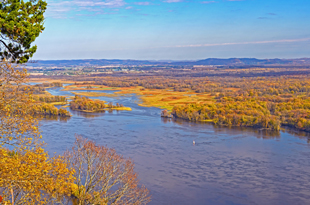Worldwide, countless communities face water shortages and millions of children under the age of five die each year from diseases contracted from impure drinking water. In the U.S., some water systems are threatened by pollution and increasing numbers of areas are struggling to deal with drought conditions, affecting the water available for residential and agricultural use. For example, the city of El Paso, which in the past primarily relied on the Rio Grande river as its water source, has been irrigating with water reclaimed from sewage treatment. Meanwhile, in 2018 the Environmental Protection Agency proposed plans to reduce the protections of the Clean Water Act.
Learning about your watershed and engaging in its restoration and protection projects gives you a way to enrich your connections with your fellow citizens and your community. A watershed (also known as a catchment or drainage basin) refers to an area of land where precipitation, mainly rainfall and snowmelt, collects in lakes and reservoirs and flows through creeks, streams, and rivers to a common outlet, such as a lake, bay, or the sea. Watersheds vary greatly in size, from a single county to thousands of square miles. For example, the Mississippi River Watershed drains 1.15 million square miles from 31 states. You can find out more about your watershed and see a map of it at https://water.usgs.gov/wsc/index.html.
Here are some ways you can strengthen democracy at the local level through water-focused civic engagement:
- After you’ve learned about your watershed, spend a few minutes reflecting on the equalizing nature of our common dependence on water. All life depends on water.
- Join a watershed restoration group or Watershed Stewards Academy (WSA) and explore what kinds of political actions it can support.
- Even if you don't join a watershed restoration group or WSA, implement your own water saving measures, like installing rain barrels, recycling waste water, and conserving water use while showering, doing laundry, and dishwashing.
- Organize a clean-up or restoration day at a local waterway.
- Organize a local prayer walk at an area that is important to your watershed.
- Hold worship services outside near a creek, pond, or other body of water.
- Pray for drought-stricken areas.
